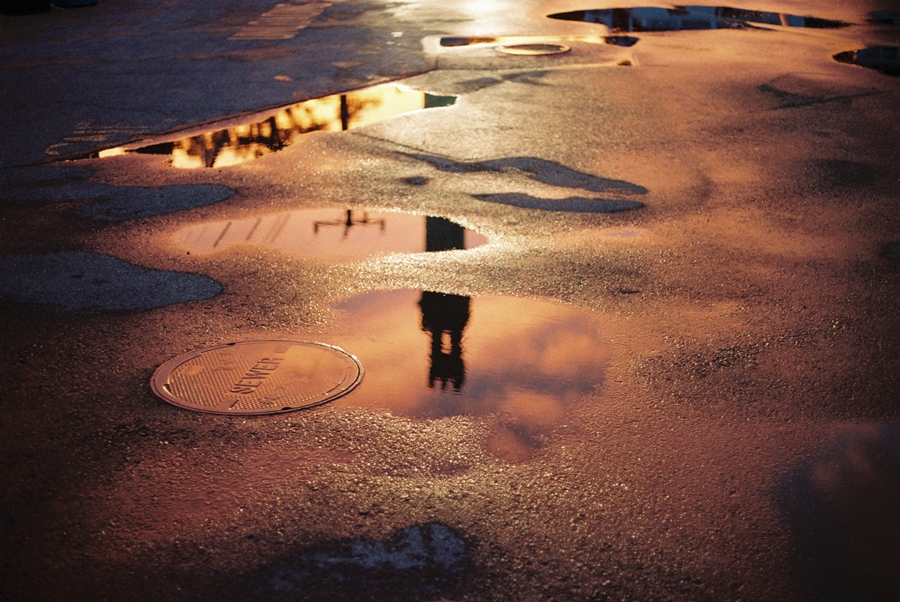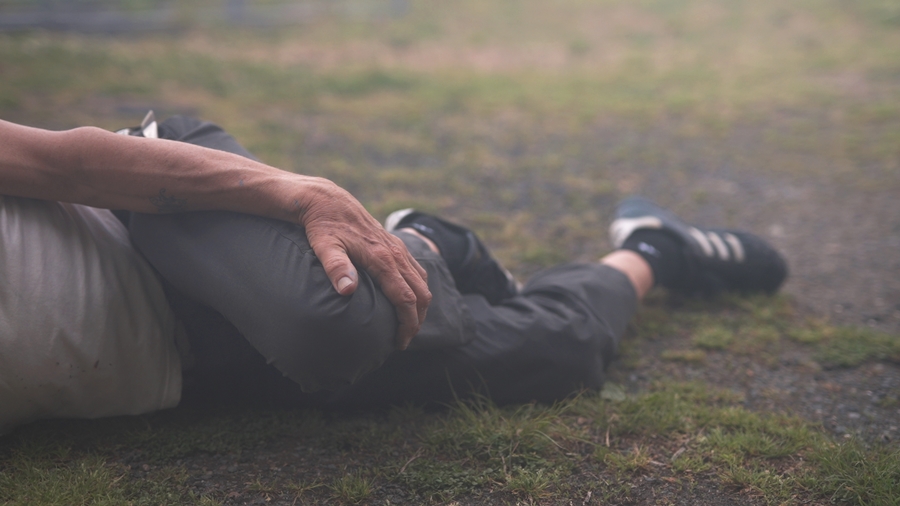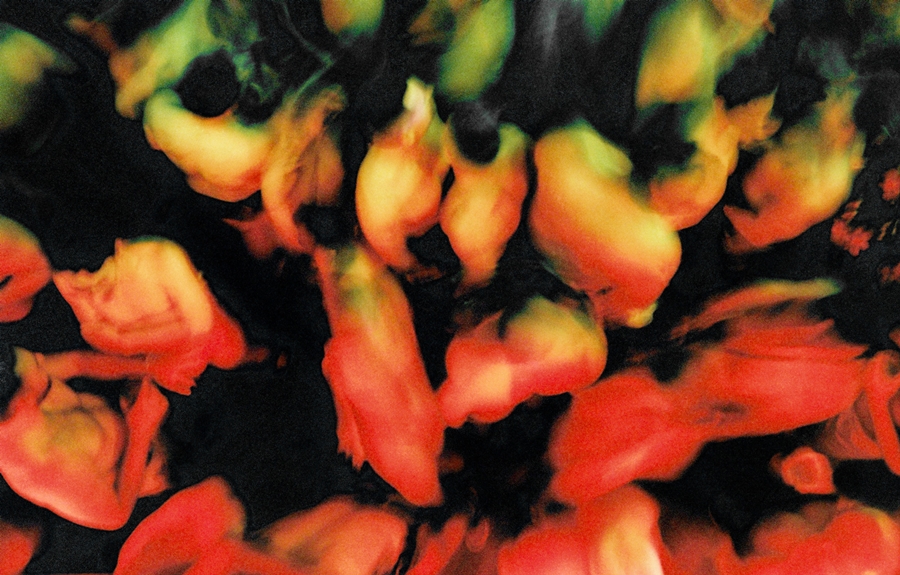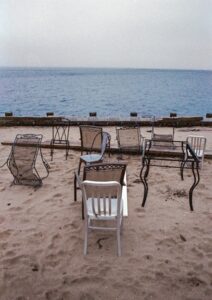Certain motifs appear repeatedly in artistic depictions of Provincetown: the sweep of the dunes, the silhouette of the Pilgrim Monument, the transcendent quality of the storied Cape light. But photographer Elias Duncan is drawn to the town’s less obvious aspects: the liminal, the overlooked, the incomplete, and the hidden. In an exhibition called “Landing” at Treadwell Gallery opening Aug. 2, his photographs of Provincetown reveal the spaces and moments that most visitors, and even many residents, tend to overlook.

Duncan, who is a regular contributor to the Independent, moved to Provincetown in 2022 from Washington, D.C. In an artist statement for his new show, he relates the “banal story” of his arrival here, which involved a vague plan to quit his job and work in a sandwich shop for the summer. “And like many who intend to stay for just the season,” he says, “I never left.”
While he was drawn to the Outer Cape for its potential connections, especially with other gay men, Duncan says he stayed through the winter for a very different reason, which he describes as “a feeling I hadn’t really experienced elsewhere — an existential longing, a poignant, almost poetic lonesomeness.”
During that time, Duncan came to see Provincetown as a liminal space, one that exists somewhere both between and distinct from its identity as a hedonistic getaway and a place of sublime natural beauty. The town also made him think about existential matters in general. “Something about this place makes me think about life,” he says, “sometimes so intensely that it borders on dissociation.”

That poetic dissociation is a defining quality of Duncan’s photographs. Many of them depict empty spaces: images of the lot behind Angel Foods in Provincetown’s East End and MacMillan Pier are like stage sets awaiting actors to make an entrance. Human presence is often implied instead of shown. When figures do appear, as in a portrait of artist Mark Adams reclining on the grass at Provincetown’s Motta Field, their bodies are often truncated by the frame. A photograph of the Provincetown nightclub Purgatory taken during an underwear party is less notable for the sweaty, shirtless figures that crowd the dance floor than it is for the spaces between them, which create an almost abstract composition of indistinct forms and blurs.

Even his images of Provincetown’s natural environment and architecture are marked by a lack of sentimentality. The visual poetry of a perfectly composed image of the top of the Pilgrim Monument reflected in a puddle at sunset is saved from cliché by the emphatic, unlovely presence of a sewer cover in the center.
Through formal contradictions like these — absence versus presence, connection versus separation, the sublime versus the workaday — Duncan’s photographs manage to express both something universal about the nature of Provincetown as well as an intensely personal experience. He describes taking them when he finds himself in one of the “insolated, ruminative states” that arise from an awareness of being part of a tight-knit community while at the same time feeling a sense of objectivity about it.

“During these heady moments, I’ll usually grab my camera and document what’s going on around me,” he says. “It’s a process that lets me feel closer to what I’m observing without fully immersing myself in it, leaving me with a simultaneous sense of belonging and detachment. This feeling isn’t good or bad. It’s just central to my experience here.”
‘Landing’
The event: Photographs by Elias Duncan
The time: Friday, Aug. 2 through Friday, Aug. 9
The place: Treadwell Gallery, 397 Commercial St., Provincetown
The cost: Free.



